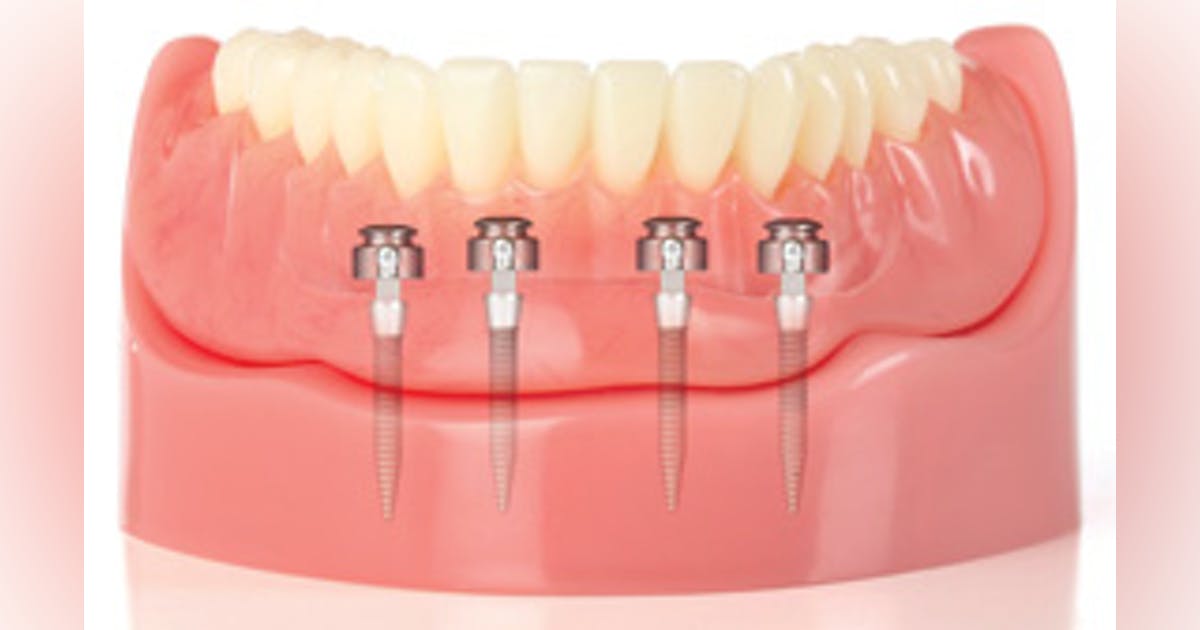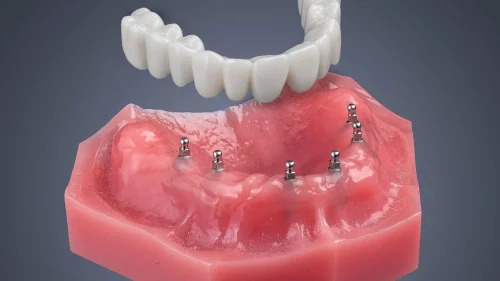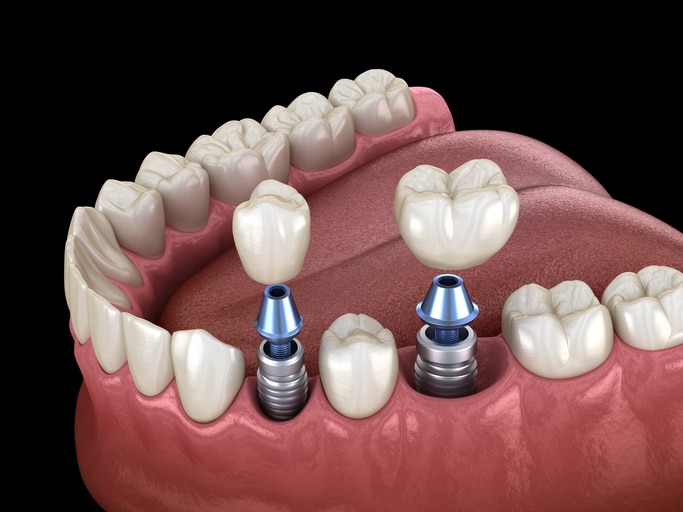
Understanding Mini Dental Implants: What They Are and How They Function
In the world of modern dentistry, mini-dental implants have played a significant role, with origins dating back to the 1970s and official recognition as a prosthetic implant system by the American FDA in 1999. Despite their numerous advantages such as cost-effectiveness, ease of use, fast healing and minimal gum irritation, they are not always the first choice in the dental practice.
Given these characteristics, mini-implants offer significant advantages to many patients with inadequate bone structure or in narrow regions. However, it must be noted that their capabilities are limited and their use in all areas cannot guarantee high-quality implant treatment. This article sheds light on what makes mini-implants special, how they work, their benefits and limitations, and why they can be a significant solution for certain patient groups.
What is Mİni implant?
Mini dental implants are dental implants with a diameter of less than 3 mm, which is almost equivalent to the thickness of a toothpick. These implants are inserted straight into the jawbone and are one-piece rather than two-piece like traditional implants. In contrast to conventional implants, which are typically placed beneath the gum, mini implants are positioned on the jawbone and feature a protrusion in the shape of a ball, facilitating the attachment of the prosthesis. The prosthesis is placed and fixed in place by pressing this protrusion.

Mini dental implants can be utilised for the placement of a single tooth, or, alternatively, they can be connected together using a bar. The incredibly thin structure of mini dental implants allows for more stable and reliable results when used in multiple numbers and connected through dentures or a bar.
The Advantages of Mini Dental Implants
The primary benefits of mini dental implants that garner significant attention from patients are as follows;
Reduced Diameter:
Mini dental implants have a reduced diameter of less than 3 mm, allowing them to be inserted into restricted areas.
Less Complicated Surgical Techniques:
Because mini dental implants are so tiny, less invasive surgical techniques can be used to place them, which speeds up the healing process after surgery. Unlike conventional implant treatments, which can take three to four months to heal, these procedures only take a few weeks to heal.
Positive Marginal Bone Loss:
These implants show positive results in terms of marginal bone loss over time, which helps the implant stay healthy for longer.
Minimal Osteotomy Size:
The minimal osteotomy size (cutting and reshaping of bone) required during placement provides extra blood supply to the supporting bone and better angiogenesis.
High Success rate for mandibular overdentures
A 16-year scientific study published by MDPI (Multidisciplinary Digital Publishing Institute) on March 12, 2024, found that mini dental implants perform better in the mandibular region than conventional dental implants. This study has a 97.8% success rate over 16 years.
Easy Removability and Healing:
In case of failure, mini implants can be easily removed with minimal surgical trauma, and the area can heal quickly.
Economical and Accessible:
Mini implants generally cost less, making them a viable option for patients with limited financial means. You might find that they are two or even three times cheaper.
Bone Requirements:
It is ideal for patients with narrow and atrophic bone structures because the bone may not have the width and height required for traditional implants.
Flapless Surgery Options:
Mini dental implants allow for less invasive treatment using flapless transgingival techniques, which speed up healing even further.
Disadvantages of Mini Dental Implants
The appealing benefits of mini implants are not without their major drawbacks when contrasted with the more conventional options. The primary drawbacks of these are:
Risk of Fracture;
Because of their delicate structure, mini implants are prone to breaking under extreme chewing forces or outdoor impacts.
They are not as long-lasting as traditional implants
Mini implants do not have the same level of success as traditional implants, which have a success rate of over 95% after 10 years, according to a study. This is usually due to weaker osseointegration, which is the process of implant and tissue integration.
They might not work with the standard implant system.
Mini dental implants rely on the protrusion on the palate to hold the prosthesis in place, as opposed to conventional implants that require an additional component called an abutment. When used together, this results in a disparity in level and can potentially impose additional stress on conventional implants. It is crucial for the dentist to accurately diagnose these issues and carefully consider them during the application process.
They are unsuitable for rapid osteoporosis.
Bone support is crucial for mini-implants success. So, rapid osteoporosis can lead to insufficient support for the implant body, causing gradual tremors and falls.

Limited Applications:
Mini implants are typically used to secure dentures and in locations where the bone density is inadequate for conventional implants. In high-bite-force areas, they may not support larger bridges or crowns.
Not Suitable for Everyone
Mini dental implants may not be recommended for severe bruxism or poor bone quality due to increased complications.
Ideal Candidates for Mini Dental Implants
Anyone looking for a less intrusive and more affordable dental procedure would benefit greatly from mini dental implants. They are ideal for people who do not want to undergo bone grafting, have loose dentures that need to be stabilised, or do not have enough room in their mouths for traditional implants. In addition, mini implants provide a faster recovery time, which is appealing to patients who want to get back to their normal routine quickly. These individuals encompass the elderly and those with medical conditions that may limit their suitability for more intrusive treatments.
Dental Implants or Mini Implants
Each implant has its own set of pros and cons that different patients will experience. The table below shows a more detailed comparison.
|
Traditional Implants |
Mini Dental Implants |
|
|
Dimension |
Usually larger diameter and length (between 3-7 mm) |
Smaller diameter and shorter length (less than 3mm) |
|
Surgical Invasiveness |
More invasive, it may require bone grafting. |
Less invasive, bone grafting is usually not required. |
|
Bone Density Requirement |
It requires high bone density and volume. |
Suitable for patients with low bone density. |
|
Cost |
Usually more expensive |
An affordable alternative. |
|
Healing Process |
Longer recovery period (About 3-4 months) |
Faster healing process (About a month) |
|
Scope of application |
Wide application area, use in single or multiple missing teeth |
Ideal for narrow spaces and denture stabilization |
|
Long life |
High success rate and longevity |
Potentially shorter-lasting than traditional implants |
|
Target group |
Those with adequate bone density, including a wide range of patients |
Those with insufficient bone density and those looking for a less invasive solution |
Currently, it may be premature to consider mini dental implants as a replacement for conventional ones. However, it is possible that, in the near future, they could become a viable option. It is necessary to assess the patient's comprehensive X-ray results alongside the proposed treatment in order to arrive at the correct choice. At Antlara Dental, we utilise mini implants as an alternative implant method when deemed necessary, although we do not recommend it for all patients.
